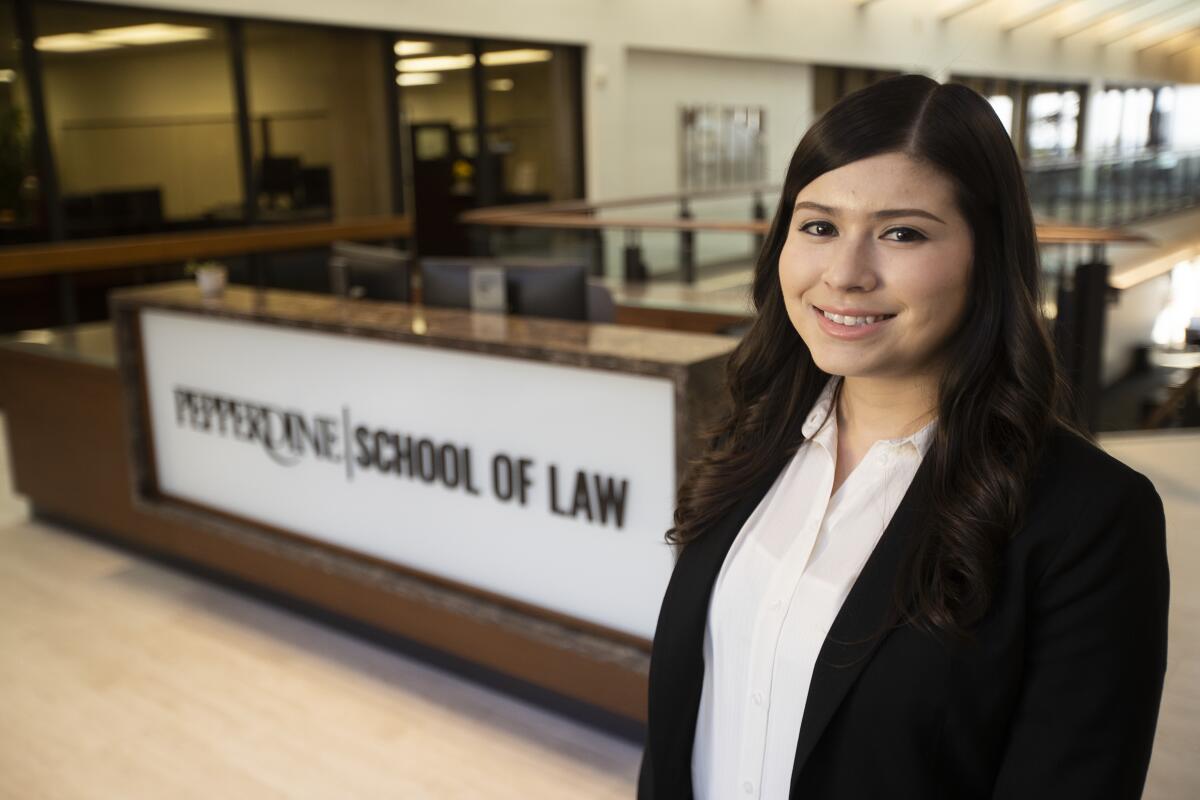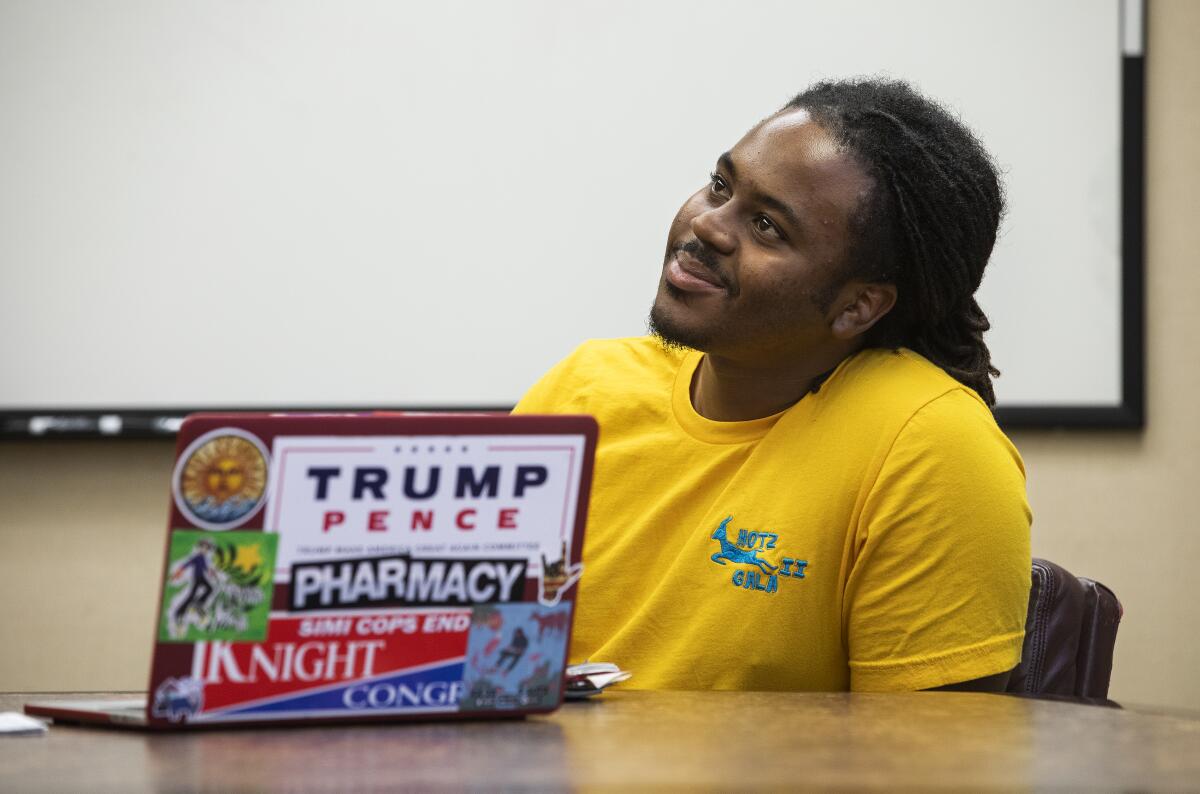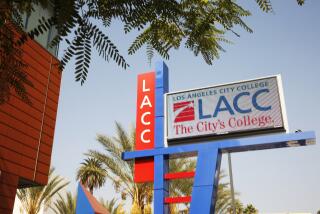Billionaire Rick Caruso gives $50 million to Pepperdine law school to expand access for underserved students

Carmen Izquierdo-Oliva grew up in South Los Angeles with immigrant parents who scrabbled to make ends meet as painters and janitors. She steered clear of the drugs, booze and gangs that entrapped her friends and studied hard enough to earn undergraduate admission to UCLA, UC Berkeley and her first choice, Pepperdine University.
Now a Pepperdine law school student, she would love nothing more than to help her community as an immigration attorney when she graduates in 2021. But facing $120,000 in student loan debt, she’s looking at the more lucrative avenue of corporate law instead.
“That’s the battle you have as a student,” Izquierdo-Oliva said. “You want to help your community but you also want a job that provides security, allows me to really pay off a lot of my debt and in the long run help out my family. It’s a big pressure.”

Now billionaire developer Rick Caruso and his wife, Tina, are stepping in to help students like Izquierdo-Oliva ease that dilemma. On Wednesday, Pepperdine law school will announce its largest-ever gift, $50 million from the Carusos to help low-income and other underserved students attend, pay off student loans and pursue public service careers. The Carusos also have pledged to help raise an additional $50 million over the next decade for an endowment to keep the financial aid sustainable.
The gift marks the largest contribution for any single project by the Carusos, who also have given more than $150 million over the years to USC and other organizations to support education, healthcare, public safety, culture and arts, and faith-based programs. A primary focus has been building a pipeline to college for underserved students, including support of Para Los Niños, an educational and social services nonprofit founded on Skid Row, and Operation Progress, an LAPD mentoring program in Watts.
“These are kids who work so hard and are so dedicated, who have started in the worst human conditions locally that you can think of, who somehow pick themselves up,” Caruso said. “How could you not be motivated to support them?”
He said he hoped the gift would help law school graduates from underserved areas return there to help lift their communities — bolstered with compassion, a top-notch legal education and the cultural IQ to understand the neighborhood challenges. He added that Pepperdine, which promotes both excellence and faith as a Christian institution, would encourage values to “do the right thing and not just the easy thing.”
“If I get a bunch of these really smart lawyers who understand real social justice and real fairness in life, and you put them back into the system, I think it’s a game changer,” said Caruso, who attended Pepperdine law school as did his son, Alex.
Paul L. Caron, Pepperdine law school dean, said the average loan debt of his students is $144,000. More than half of the typical incoming class of 160 students receive scholarships ranging from $5,000 to $57,000, the annual tuition. Most awards are based on financial need and merit — an applicant’s college GPA and law school exam score. The Caruso gift will allow the school to double the percentage of scholarship funds for underserved students to about 30%, Caron said.
The school also will be able to dramatically expand a loan forgiveness program the Carusos started more than a decade ago. The program has helped about 70 students pay off their debt if they enter public service — seven recipients with five years of public service, for instance, have received an average award of $42,670.
With the new gift, Caron said, Pepperdine hopes to help all students who qualify for the Caruso Loan Forgiveness Fund cover their law school loan payments for 10 years. After that, a federal program forgives the balance owed for those who stayed in public or non-profit service.
In addition, the law school plans to use the funds to hire more faculty and boost research.

Pepperdine former and current students say any help with loans would be a godsend. Jordan Dixon-Hamilton, a Palmdale native and second-year law student, received a Pepperdine scholarship covering half his tuition but still expects to graduate with nearly $160,000 in debt. He said his first-choice career would be public interest law, perhaps working for an elected official, but he may not be able to afford to do so.
Michelle Stilwell graduated from Pepperdine in 2016 with a six-figure student loan debt but still pursued her passion to help survivors of torture apply for asylum. She said she frequently regretted that decision as she struggled to make ends meet as a non-profit attorney in high-priced Washington D.C.
“The biggest barrier to going into public service law is student loans,” she said. “Deep down, people choose to go into law to help people, but the more you realize the financial repercussions, it can be terrifying.”
But Stilwell stuck with it and received a $6,000 Pepperdine award this summer to help with her loan payments. She is waiting to start a higher-paying federal job working on asylum cases.
Caruso said his desire to expand his philanthropy to graduate and professional education was inspired by a young woman, Jennifer Alvarado, whom he met while she was in high school and part of an LAPD mentoring program. She grew up in the Imperial Courts housing project in Watts, encountering dead bodies in the street and frequent gunfire. Without her mentors, she said, she would not have made it to college.
“They were able to see the potential in me before I was able to see the potential in me, and that was honestly such an impactful thing,” she said.
Now Alvarado, 20, is a junior at Boston College. She is aiming her career and education goal on nursing or possibly a PhD in psychology.
“It really hit me that these kids have big dreams,” Caruso said. “So why not now take the next step and help them to higher education in a graduate degree?
“The human spirit is endless if you free it up, just give it a chance,” he said.
More to Read
Sign up for Essential California
The most important California stories and recommendations in your inbox every morning.
You may occasionally receive promotional content from the Los Angeles Times.











